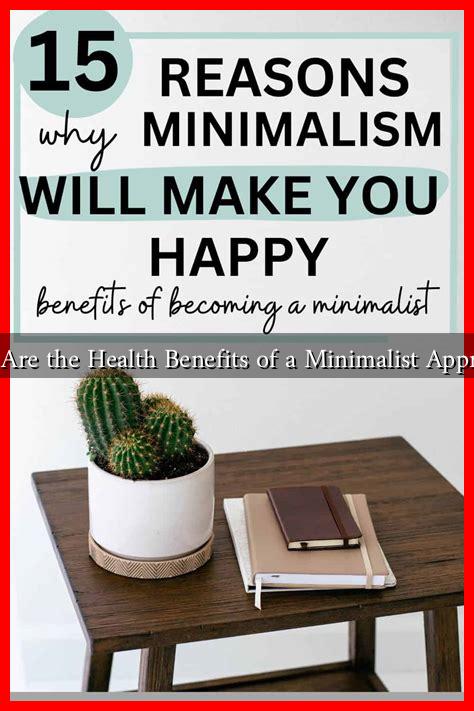-
Table of Contents
What Are the Health Benefits of a Minimalist Approach?
In a world that often glorifies excess and consumerism, the minimalist lifestyle offers a refreshing alternative. Minimalism is not just about decluttering physical spaces; it encompasses a holistic approach to life that prioritizes simplicity, intentionality, and mindfulness. This article explores the myriad health benefits of adopting a minimalist approach, supported by research, examples, and practical insights.
Understanding Minimalism
Minimalism can be defined as a lifestyle choice that emphasizes the reduction of material possessions and distractions to focus on what truly matters. This philosophy can be applied to various aspects of life, including home, work, and relationships. The core idea is to create space—both physically and mentally—for what brings joy and fulfillment.
Physical Health Benefits
Adopting a minimalist lifestyle can lead to significant improvements in physical health. Here are some key benefits:
- Reduced Stress Levels: A cluttered environment can lead to increased stress and anxiety. Studies have shown that individuals living in cluttered spaces experience higher levels of cortisol, the stress hormone. By simplifying their surroundings, minimalists often report feeling calmer and more focused.
- Improved Sleep Quality: A minimalist bedroom, free from distractions, can enhance sleep quality. Research indicates that a serene environment promotes better sleep hygiene, leading to improved overall health.
- Enhanced Physical Activity: Minimalism encourages individuals to engage in activities that promote well-being, such as walking, yoga, or outdoor adventures. By prioritizing experiences over possessions, minimalists often find themselves more active and engaged in their physical health.
Mental Health Benefits
The mental health benefits of minimalism are equally compelling. Here are some ways in which a minimalist approach can enhance mental well-being:
- Increased Focus and Productivity: A clutter-free environment allows for better concentration. Research from the Princeton University Neuroscience Institute suggests that clutter can significantly limit our ability to focus and process information.
- Enhanced Mindfulness: Minimalism encourages individuals to be more present and intentional in their daily lives. This mindfulness can lead to reduced anxiety and improved emotional regulation.
- Greater Life Satisfaction: Studies have shown that individuals who prioritize experiences over material possessions report higher levels of happiness and life satisfaction. Minimalism fosters a sense of gratitude and appreciation for what one has.
Social and Emotional Benefits
Minimalism also has profound effects on social and emotional well-being:
- Stronger Relationships: By prioritizing quality over quantity, minimalists often cultivate deeper, more meaningful relationships. This focus on connection can lead to increased emotional support and fulfillment.
- Reduced Financial Stress: A minimalist lifestyle often involves spending less on unnecessary items, leading to improved financial health. This reduction in financial stress can have a positive impact on overall well-being.
- Increased Resilience: Embracing minimalism can foster a sense of resilience. By learning to let go of material attachments, individuals often become more adaptable and better equipped to handle life’s challenges.
Case Studies and Real-Life Examples
Many individuals and families have successfully adopted a minimalist lifestyle, reaping its health benefits. For instance, the documentary “Minimalism: A Documentary About the Important Things” showcases various people who have transformed their lives by embracing minimalism. They report not only improved mental and physical health but also a renewed sense of purpose and clarity.
Additionally, research from the University of California, Los Angeles (UCLA) found that individuals who decluttered their homes experienced a significant decrease in stress levels and an increase in overall happiness.
Conclusion
The health benefits of a minimalist approach are profound and multifaceted. From reducing stress and improving sleep quality to enhancing focus and fostering deeper relationships, minimalism offers a pathway to a healthier, more fulfilling life. By prioritizing what truly matters and letting go of excess, individuals can create a life rich in experiences, joy, and well-being.
As you consider adopting a minimalist lifestyle, remember that it is a personal journey. Start small, focus on what brings you joy, and gradually embrace the simplicity that minimalism offers. For more insights on minimalism and its benefits, you can explore resources like The Minimalists.

